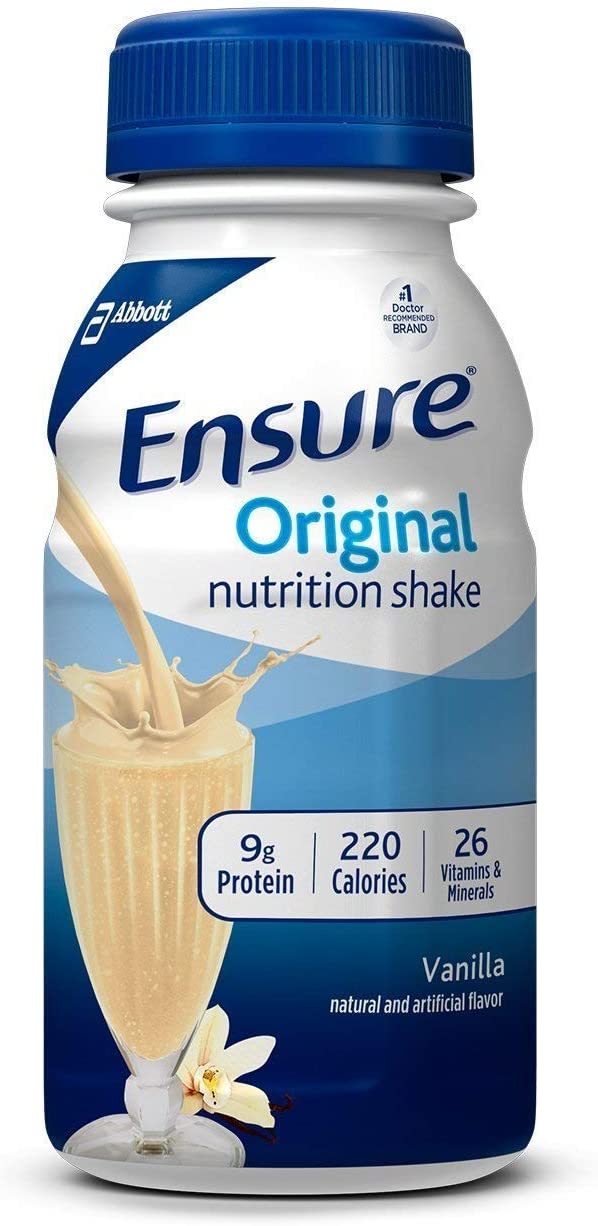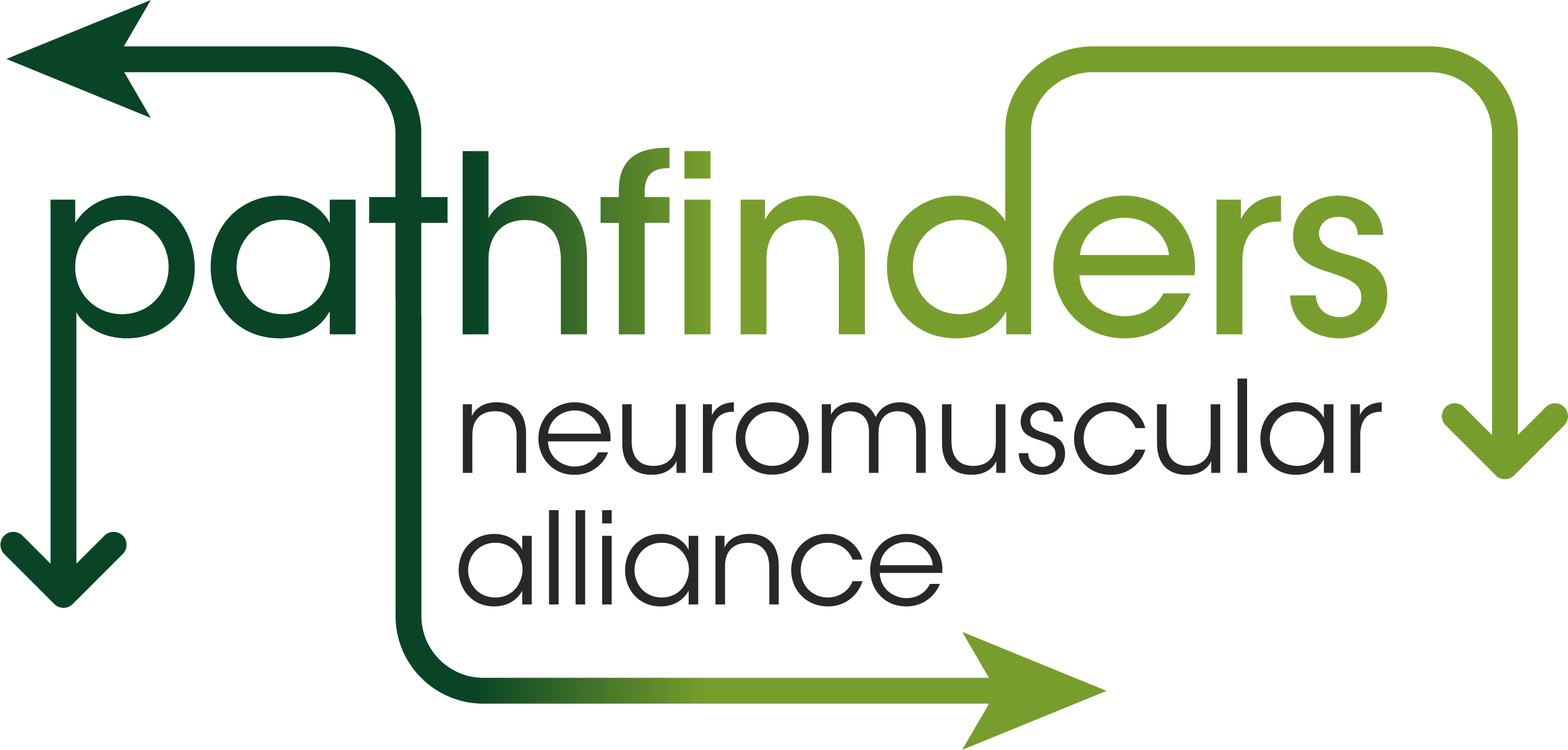Energy balance is an important concept for understanding weight management. The body uses energy all the time, even when at rest or sleep. Energy balance is when the energy obtained from diet (measured in calories) meets the energy that the body needs. If you have more calories than your body needs, you will gain weight. If you have fewer calories than your body needs, you will lose weight. This means to maintain a healthy weight, you will need to be aware of both changes in the amount of calories in your diet, as well as changes to your energy needs. It’s important to eat a healthy diet.
As an individual with neuromuscular disorders stops walking, energy needs often decrease making obesity a greater risk. As an individual experiences respiratory decline, energy needs increase making undernutrition a greater
concern.
As adults switch to permanent ventilation, breathing difficulties decrease and nutritional requirements also decline. A study by Gonzalez-Bermejo in 2004 on adults with DMD identified that those who are on permanent ventilation had a lower resting energy expenditure. This means they need fewer calories. This explains why some people with muscle-weakening conditions start to put on weight once they have 24/7 ventilation.
Energy balance can also change in the short term. You will need more energy during illness and infection, after surgery and when breathing becomes more difficult.

Even if you usually eat normally, you should consider using nutritional supplements or meal replacement drinks. During periods of illness you may need more calories.
Obesity
Children and some young adults have to be careful to avoid becoming obese. This is important when using steroids as they can cause increased appetite and weight gain. Weight gain can sometimes be an issue for older adults as well. It often occurs where they are on permanent NIV and in good health.
Obesity causes problems with breathing and mobility. The body must work harder to use muscles. Being obese also makes it harder for family and carers to help with moving and handling. If necessary, people may need a weight loss diet to restore a healthy weight.
It is important that a proactive approach is taken before a child or adult becomes overweight. It’s easier, and healthier to prevent weight gain in the first place than to lose weight afterwards!
Under-nutrition
For older teenagers and adults, under-nutrition is a significant risk and individuals can quickly become underweight. This may be due to loss of appetite associated with respiratory problems, difficulties with chewing and swallowing. It may also be a result of increased nutritional requirements from increased work of breathing.
Under-nutrition adversely affects respiratory muscles, reducing muscle mass and strength. It additionally affects immune function, wound healing, sensitivity to oxygen (prolonging ventilator weaning) and psychosocial function.
Adults and their families can find it hard to recognise when they are becoming underweight. This is particularly common for people who are used to trying not to gain too much weight. It may require a shift in mind-set.
What do I need to look out for?
In reviewing nutritional requirements, it is important to consider a
number of factors:
Weight – where possible adults with neuromuscular disorders should be weighed regularly. Pay attention to any unintentional weight changes over time. Weight is the best indicator of achieving energy balance. It is important to monitor regularly, every 6 months if stable and more regularly if unwell. If it is hard to get weighed regularly, consider other signs of weight loss or gain. These can include the fit of your clothes or the circumference of your upper arm.
Nutritional intake/appetite – adults with muscle-weakening conditions should monitor how much they are eating compared to normal. This includes snacks in between meals, and in particular how often meals are left unfinished.
Fatigue or difficulty with eating – this can result from increasing problems with chewing and swallowing or respiratory problems. This may be an early sign that weight loss could become a problem.
Changes in energy needs – If fighting an infection or starting to need use of the ventilator more during the day, you are likely to need more energy and more calories than usual.
Where can I get help with weight?
Where possible, adults with muscle-weakening conditions should attend an adult clinic which has access to a specialist dietitian or speech and language therapist to allow tailored advice and multidisciplinary management. If this is impossible ask to be referred to the local dietetics and speech and language therapy services.
Where can I weigh myself?
Some clinics use a weighing scale which weighs the individual in their wheelchair and subtracts the weight of the wheelchair from this. Make sure you remove additional equipment, bags etc every time.
Where an individual gets a new wheelchair or makes modifications to it, they will need to weigh the chair empty again. This is important to compare with previous weight history.
Some clinics and community teams use a weighing scale that attaches to a hoist/Hoyer lift and weighs the individual directly. You can also buy these for yourself.
Strategies to lose weight
• Reduce any sugary drinks e.g. fizzy drinks, juice, alcohol. Focus on water as the main drink with some dairy (e.g. milk) for bone health.
• Reduce frequency of high calorie, low nutrient foods e.g. takeaways especially fried food, bakery products e.g. croissants, Danish pastries, muffins, crisps, chocolate
• Try and have low calorie snacks e.g. vegetable sticks (raw or steamed) with salsa, berries
• Include lean proteins at meals and snacks: e.g. tin tuna, boiled eggs, chicken
• Focus on having 2 servings of fruit and 5 servings of vegetables daily.
• Eat 3 regular, balanced meals a day and plan your meals for the weeks.
Strategies to gain weight
• Focus on increasing the nutrient density of foods rather than the amount of food you eat e.g. adding fats (butter, margarine, oil, cream) and protein (milk powder, full cream dairy, meat/chicken/fish, eggs, tofu)
• Eat more nutrient-dense snacks e.g. full fat dairy (yoghurt, cheese, custard), peanut butter on crackers or bread, sweet or savoury muffins
• Eat and drink more milky drinks/condensed soups e.g. flavoured milk
• Your dietician can also prescribe high calorie drinks and liquid supplements
What does BMI mean for me?
Standard BMI scales do not work for children with DMD (Pessolano et al. 2003). As neuromuscular disorders progress in adulthood, the loss of muscle also makes it difficult to reliably assess healthy weight using BMI.
NICE guidelines (2017) define malnutrition as a BMI of less than 20 kg/m2 and unintentional weight loss of greater than 5% within the last 3-6 months. If someone has a BMI of more than 25 kg/m2 they are overweight. Using this scale, many older adults with DMD will be classified as underweight. If you are in this position it is important to access local dieticians. However, even after these interventions, adults may struggle to reach a “normal” weight on a BMI scale when adequately nourished.
More research is needed to identify a NMD-adjusted BMI scale or similar tool which accounts for muscle loss in determining a healthy weight. For now, BMI guidelines can be a useful guideline. However you need to interpret them in the context of your weight history, energy requirements and nutritional intake.


